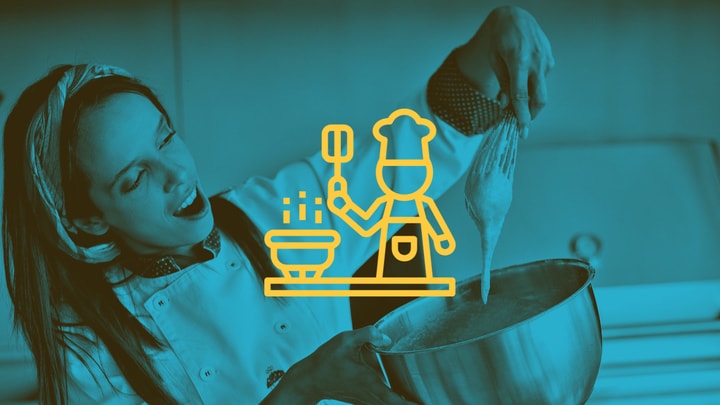Although many of the techniques that professional cooks use we cannot apply at home, some of their tricks can greatly improve our expertise in the kitchen.
To be a good home cook, it is not necessary to know all the techniques with which the participants of television cooking competitions dazzle us. The important thing is to know a handful of basic methods and recipes, and from there, let yourself go.
Now, the greatest chefs use tricks that can help us in our day-to-day life in the kitchen and it will not cost us anything to integrate them into our cooking routines.
Table of contents – Cooking Tricks From Professional Chefs
Here are some of the most useful tips from top chefs:
1. Cook vegetables with baking soda
It is recommended to add a pinch of baking soda to the water that we are going to use to cook green vegetables. This will help the vegetables to be softer, but without losing their color, which makes them look much better.
2. Marinate the meat for two days
Some meats such as lamb or game are too strong for many people, but after a good marinade they are irresistible for anyone. So, prepare lamb chops by marinating them for 48 hours in a mixture of raw papaya paste, ginger, chili powder, garam masala curry, coriander, salt, and yogurt.
Like any other marinade, it must be prepared in a dish in which the meat is submerged, and it must be kept covered in the refrigerator. Marinating is a technique widely used by professional chefs, although not so much by home cooks, despite its ease.
Just prepare a marinade of olive oil, garlic and parsley to turn chicken breasts or pork chops from a battle dish to a delight. And it’s great for fish too. Marinating also has a very interesting effect on the meat: it makes it tender, making it ideal for tougher meats, which are difficult to cook well without being too dry.
3. Salt onions before cooking
It is a great idea to add salt to onion just before cooking it. This causes the moisture to be removed faster, which speeds up cooking and allows it to brown faster. Salting food is essential to make it taste good. It is always better to do it when it is cooking, never after, as hot food absorbs salt better.
4. Cook the meat at room temperature
This is something that every self-respecting chef knows, but, despite this, in most homes the meat is cooked as it comes out of the refrigerator, a highly undesirable practice. If we cook a cold steak, it will be impossible for it to be juicy because it will not cook evenly if it is not at room temperature.
Another basic rule to make good steaks is to have the grill or pan where we are going to make the meat as hot as possible, adding only the oil needed so that it does not stick.
5. How to peel garlic faster?
Although you don’t have to go to graduate school to peel garlic, sometimes it becomes quite a cumbersome activity. To do it much faster just grab a pan and tap the garlic cloves with its base. The shell will separate from the clove and you can remove it effortlessly by hand.
6. Use aromatic herbs
Herbs like coriander, parsley, or basil can completely change the flavor of a dish and make the difference between mediocre and excellent. The important thing is to add the herbs at the end of the cooking process, so that the dish takes on its aroma, and does not only taste like these herbs.
7. Cover your working surface with plastic wrap
Plastic wrap not only serves to better preserve food in the fridge. It is also ideal to cover the countertop where we are going to work (especially if we are going to make dough) because, after handling everything, we can just roll up the plastic and throw everything in the trash.
We agree that it is not the most ecological method in the world, but if you are going to make a lot of mess it can save you a lot of work.
8. Thicken a sauce
The best way to thicken a sauce that has become too runny is to make what is known as beurre manié, a paste made up of equal parts of butter and flour. When it melts it releases the flour particles without creating lumps.
It is enough to add the paste little by little to our sauce so that it obtains the desired consistency without affecting its flavor, but always when it is cooking, never before serving. Now, we have to be careful not to overdo it, because if we add too much the plate will be very heavy.
9. Do not cook without having everything prepared
Every good cook knows that before starting to cook you have to have all the ingredients and utensils that are going to be used at hand, which is known in the hospitality world as mise en place, literally, “putting in place”. The ideal is to chop and measure all the ingredients that are going to be used in a dish before getting down to work, because there is nothing worse than having to stop because you have forgotten something. An oversight that can alter cooking times and ultimately ruin your dish.
RELATED POSTS:
